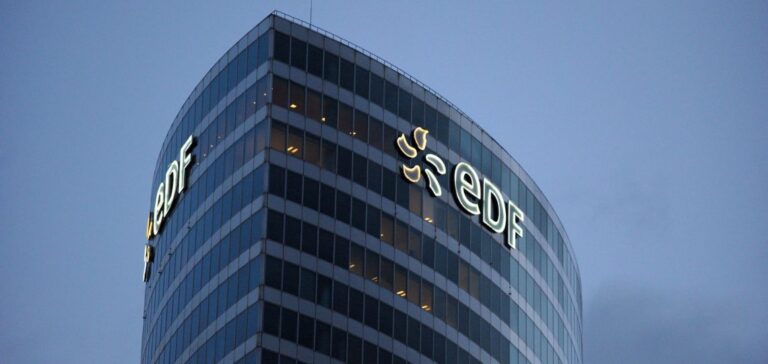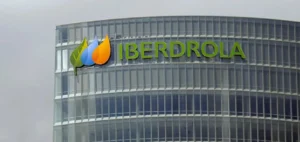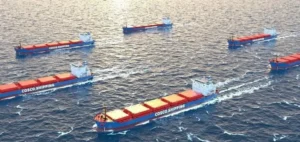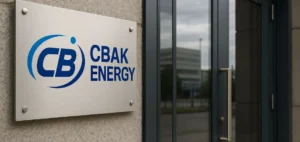The courts will render their decision on May 2 in the battle between small EDF shareholders and the French state to slow down the renationalization of the group, in particular because the share buyback price is considered too low.
The government wanted to complete everything by the end of 2022, but for months, the small employee and retired shareholders of EDF have multiplied the appeals to slow down the operation. At the hearing before the Paris Court of Appeal on Thursday, the public prosecutor’s office requested that the appeal be rejected. The final decision will be made on May 2.
The complete takeover of EDF, announced last July and valued at 9.7 billion euros, is strategic for the State shareholder, which already held 84% of its national flagship before the takeover. Its goal is to free EDF from the stock market to allow it to more easily relaunch nuclear power in France.
At the heart of the debate, the price of 12 euros per share at which the State has decided to buy back from shareholders the shares it lacks to fully control the electric company. A price considered too low: the plaintiffs claim at least 15 euros.
This price of 12 euros has been validated by the report of an independent expert, but the small shareholders believe that the company is undervalued and that it has been unfairly penalized in its revenues by a mechanism imposed by the State (Arenh) forcing it to sell its nuclear electricity at low prices to alternative suppliers. And EDF had to juggle with its corrosion problems in the reactors that caused its production to drop in 2022 and deepened its losses.
The plaintiffs are therefore challenging the compliance decision rendered by the Autorité des marchés financiers (AMF) in November, which had given the green light to the State to launch this takeover. However, the AMF assured that its decision was perfectly in line with the regulations.
Florent Segalen, the lawyer for the employee and retired shareholders of EDF, stressed that the decision to renationalize was taken in the worst year for EDF since its creation in 1946. He also claimed that the independent expert who judged this price fair was based on incorrect assumptions. Moreover, according to the small employee and retired EDF shareholders, the former CEO of EDF, Jean-Bernard Levy, should have abstained from voting at the board meeting that approved the State’s offer, because of a possible conflict of interest.
The minority shareholders are represented by Martine Faure, President of the EDF employee shareholding fund, as well as by the association Energie en actions and ADAM, an association for the defense of minority shareholders. They argued that the AMF’s decision was contrary to the principles of transparency and fairness of the market. The lawyer for the employee and retired shareholders, Florent Segalen, also stressed that the decision to renationalize was taken in a difficult year for EDF, which had its worst year since its creation in 1946.
The AMF, for its part, stated that its decision was perfectly in line with the regulations, and that the AMF Board had held three meetings to support its decision. Patricia Choquet, representative of the AMF, also stated that the protesting shareholders are not asking for better information, but rather a better price, describing their approach as “greedy”. Florian Bouaziz, EDF’s lawyer, also described their challenge as “greedy”.
Despite this challenge, a number of shareholders accepted the price proposed by the State, and the State therefore held 95.82% of the capital and 96.53% of the voting rights of EDF as of February 8. The threshold of compulsory withdrawal, which makes it possible to renationalize EDF by forcing the 4% of remaining shareholders to sell their shares, was also largely exceeded, which testifies according to the public prosecutor’s office to a “broad approval” of the price proposed by the State.





















